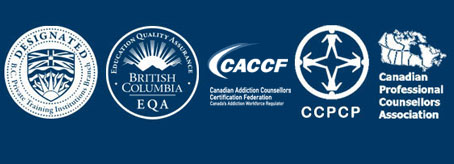Advanced Couples Therapy I & II

ACT-600 Advanced Couples Therapy I & II
This course in a nutshell:
Discussion topics: in depth exploration of cognitive, emotional and behavioral problems within the context of a couple’s relationship. A wide selection of videos demonstrate evidence-based theories, concepts and techniques applicable to the assessment and treatment phases of couple therapy
Skills: Students learn and practice techniques geared to helping heterosexual, homosexual and bisexual couples to resolve interpersonal conflicts resulting from maladaptive communication patterns learned from original family systems. Students also develop assessment tools and outcome criteria.
Course Objective: Applied Skill Development
Advanced Couples Therapy(ACT-600) is an advanced two-part course that offers in depth exploration of cognitive, emotional and behavioral problems within the context of a couple’s relationship. Students will learn to: apply concepts and related techniques in the assessment and treatment phases of couples’ therapy; and develop outcome criteria appropriate for managed care settings. The advanced therapy models introduced in this course are applicable to helping heterosexual, gay, lesbian, bisexual, and transgendered couples resolve interpersonal conflicts resulting from maladaptive communication patterns, intrapersonal issues, original family systems, and cultural bias. Students become proficient in administering assessment tools, and formulating treatment strategies and implementing research-based interventions.
COURSE CONTENT:
Advanced Couples Therapy(ACT-600), is an advanced course offered over a period of 6 weeks. This course is divided into two parts.
Part 1 offers in depth exploration of cognitive, emotional and behavioral problems within the context of a couple’s relationship. The evidence-based therapy models introduced in the text will be used to assist heterosexual, homosexual and bisexual couples to resolve interpersonal conflicts resulting from maladaptive communication patterns learned from original family systems.
Part 2 includes videos that demonstrate various concepts and techniques applicable to the assessment and treatment phases of couple therapy. Students also learn to develop outcome criteria appropriate for managed care settings. You can also choose from a diverse selection of videos to expand your competency in this topic.
Students have the opportunity to develop your own assessment tools, administer and interpret genograms, and explore intra and inter personal issues that impact dynamics of conflicted couples. You will conduct a mock therapy session with a volunteer couple to practice administering your own assessment tool and genogram. You’ll use information gathered from this assessment session to develop a comprehensive case study and treatment plan utilizing several therapeutic modalities to address the couple’s presenting issues; and conduct a final practice session to implement your treatment concepts
This course covers theories and practical techniques used in couples’ therapy. Emphasis will be placed on understanding the multi-generational dynamics that contribute to the causes of conflict, identifying problematic dynamics and communication patterns, and implementing various treatment approaches.
The information and concepts presented in this course are supported by current researchers.
Understanding the various counseling theories is essential to provide measurable success when working with couples and families. Integrating these theories into appropriate techniques can be applied to the following phases of the therapeutic process:
- Conducting assessment procedures,
- Identifying the problem,
- Setting measurable goals,
- Constructing a treatment plan,
- Establishing trust and a therapeutic alliance,
- Implementing appropriate techniques.
- Measuring the efficacy of the treatment process.
In addition, the importance of understanding the couple’s culture, traditional family values, and social developmental issues must be taken into account when working with individuals within family systems.
PORTFOLIO OF JOB SKILLS
What you will learn:
Your level of proficiency and competence with the skills introduced in this course will deepen as you proceed through the program. Upon graduation from the Diploma of Applied Psychotherapy, you may include the following list of skills as part of your Professional Portfolio. In this course you will acquire basic knowledge and understanding of various models of marital therapy in order to:
- Assess and evaluate the couple’s interpersonal dynamics.
- Identify specific goals
- Develop a treatment plan
- Implement a variety of therapeutic techniques
- Measure the efficacy of the psychotherapeutic process.
Whether providing couples therapy for straight, gay, lesbian, bisexual or transgendered couples, you will acquire the abilities to:
1) conduct a variety of assessment procedures are used to determine if the couple is an appropriate candidate for couples’ counseling model.
2) use various interview techniques, reflective listening, cognitive behaviorally based techniques, interpret inter-relational patterns from the genogram, and other in depth therapeutic techniques when working with couples.
3) assess for characteristics of disorders from the DSM-V which would impact the therapeutic process when working with couples.
4) apply a variety of therapeutic approaches to address the couple’s interpersonal needs such as couple and family communication patterns; levels of intimacy in the relationship; inter and intrapersonal issues affecting the couple’s dynamics; development of support networks; parenting issues; socio-economic concerns.
5) apply a variety of therapeutic approaches to assess for and address a range of intrapersonal issues for each spouse which may impact the couple counseling process such as low self-esteem, depression, anxiety, anger, and guilt.
6) set collaborative goals and design outcome measures.
7) assess for level of risk of suicide; harm to one another; and other crises, and to respond with appropriate intervention.
8) recognize the importance of community influence, traditional values and culturally sensitive factors when working with all clients including those from special populations and culturally diverse groups.
9) make appropriate referrals to community resources and other service providers to address the couple’s needs which fall outside the scope of practice of a psychotherapist
10) practice within ethical guidelines and limits of confidentiality; and to maintain appropriate boundaries in the therapeutic relationship.
11) consult with supervisors and colleagues to manage counter transference issues and signs of burnout.
A series of supplemental training videos available in the KCPC Streaming Library demonstrate a variety of techniques used in couples’ therapy.
(NOTE: The skill set you will learn in this course comprises areas of core competence required for the practice of professional counselling and psychotherapy.)






